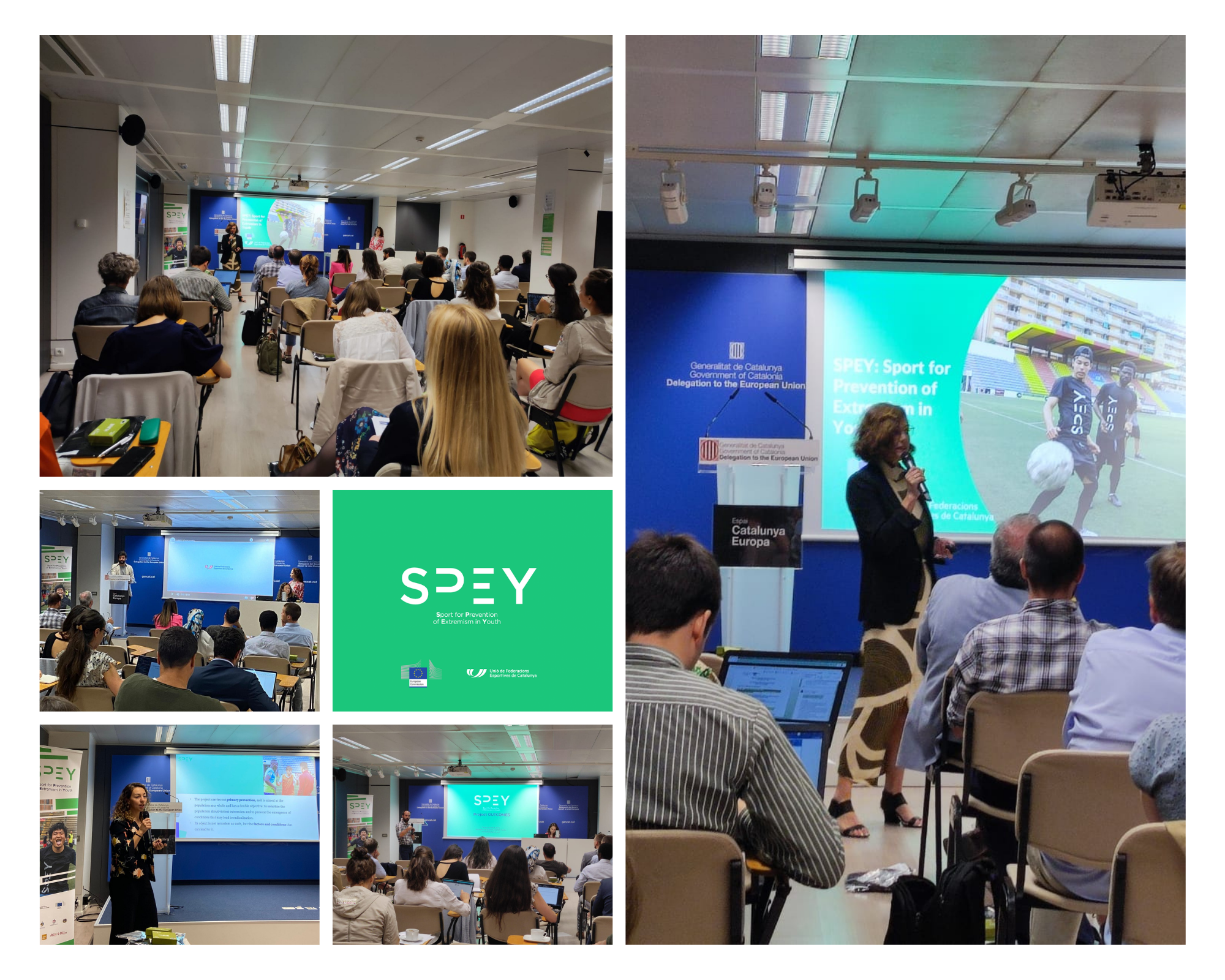
After two and a half years of research, training and implementation, the SPEY (Sport for the Prevention of Extremism in Youth) project have reached the end. A closing that took place the June 14th at the Delegation of the Government of Catalonia to the European Union (Brussels).
Fifty representatives from the world of sports and social affairs, political leaders and youth experts took part in a final conference which was the last opportunity to share the findings of the project, the barriers faced and the lessons learned.
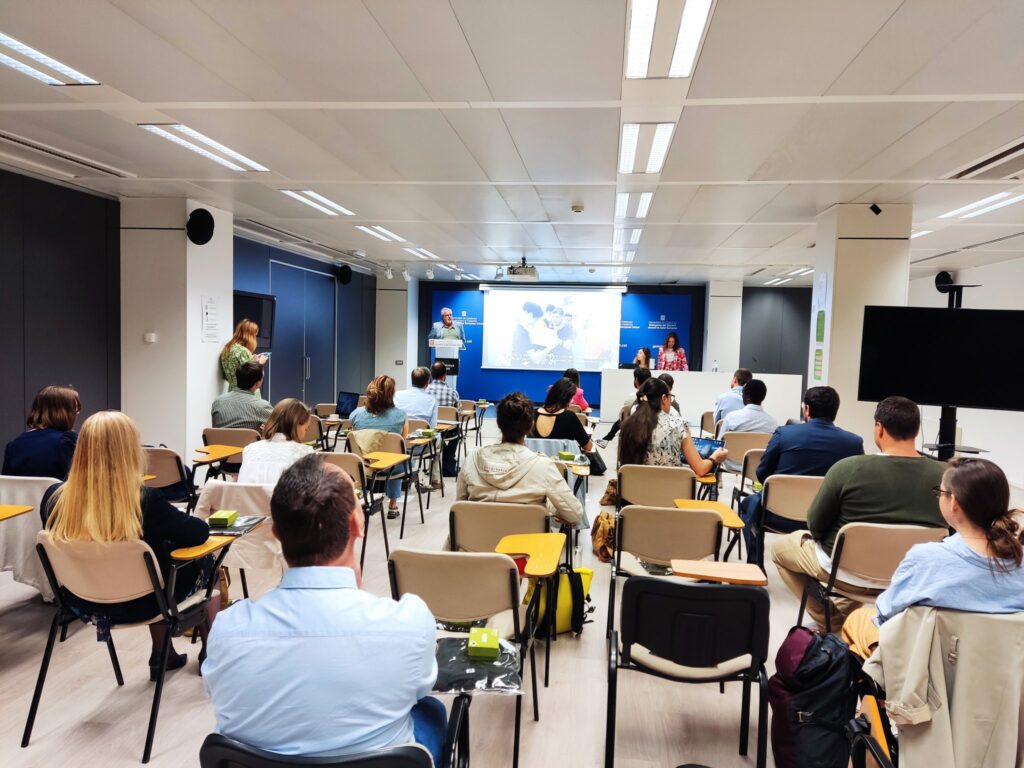
And above all, it has served to disseminate the socio-sports program generated by the project, which will allow other entities to replicate it and implement sports activities and transversal skills to encourage critical thinking among youth and avoid possible radicalization processes.
A program resulting from the constant cooperation between the UFEC, entity that leads the project; and different relevant actors, such as local administrations, sports federations, clubs or NGOs. All activities are scientifically validated by experts from the University of Córdoba.
Event summary
Gerard Esteva, President of the UFEC, was in charge of presenting the event. “Sport is one of the most important tools in the fight against radicalization and achieving equality,” he said in the first speech, before giving way to Marisa Fernandez, deputy head of the European Commission’s Sports Unit, who detailed the EU sports policy and funding for sport.
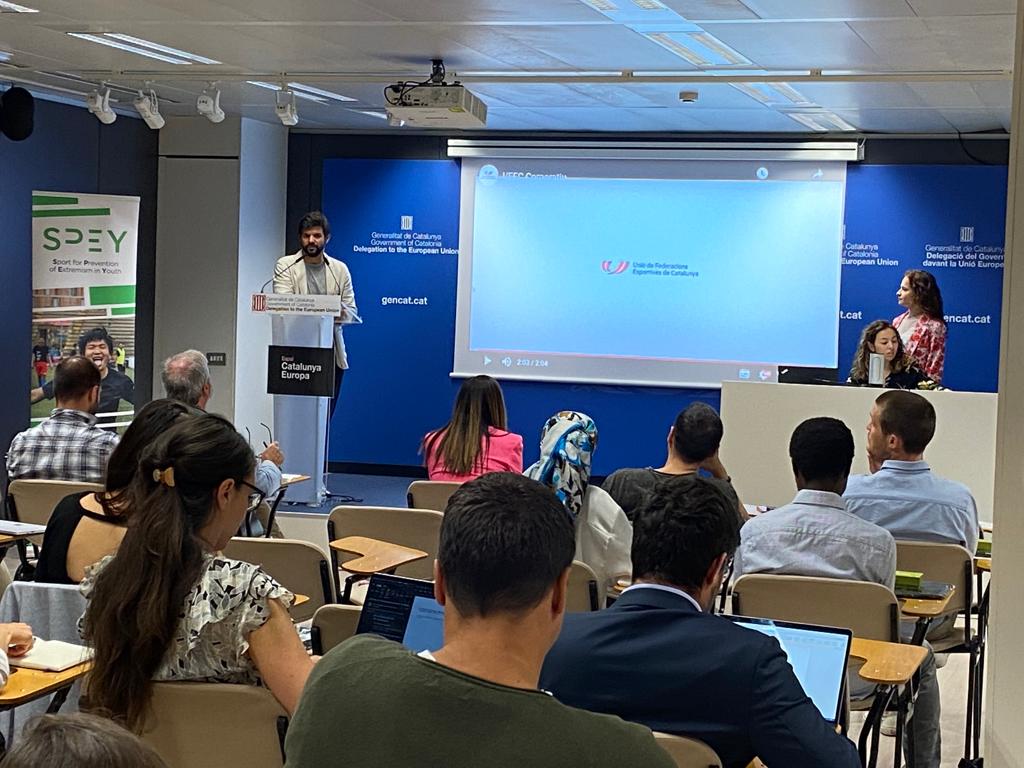
Later, Milena de Murga, psychologist and criminologist, co-creator and coordinator of the SPEY project and director of the Department of Social and International Projects at the UFEC, presented the conclusions of the project and the final SPEY documentary. He also stated that “our goal is to create a sports program against the radicalization of youth, applicable to any European country and culture.”
As a result, a Trainers Manual and Toolkit have been created and published, which are available free of charge. Two tools that will allow other organizations to replicate the project and implement sports activities and transversal skills to encourage critical thinking among the youth and avoid possible radicalization processes.
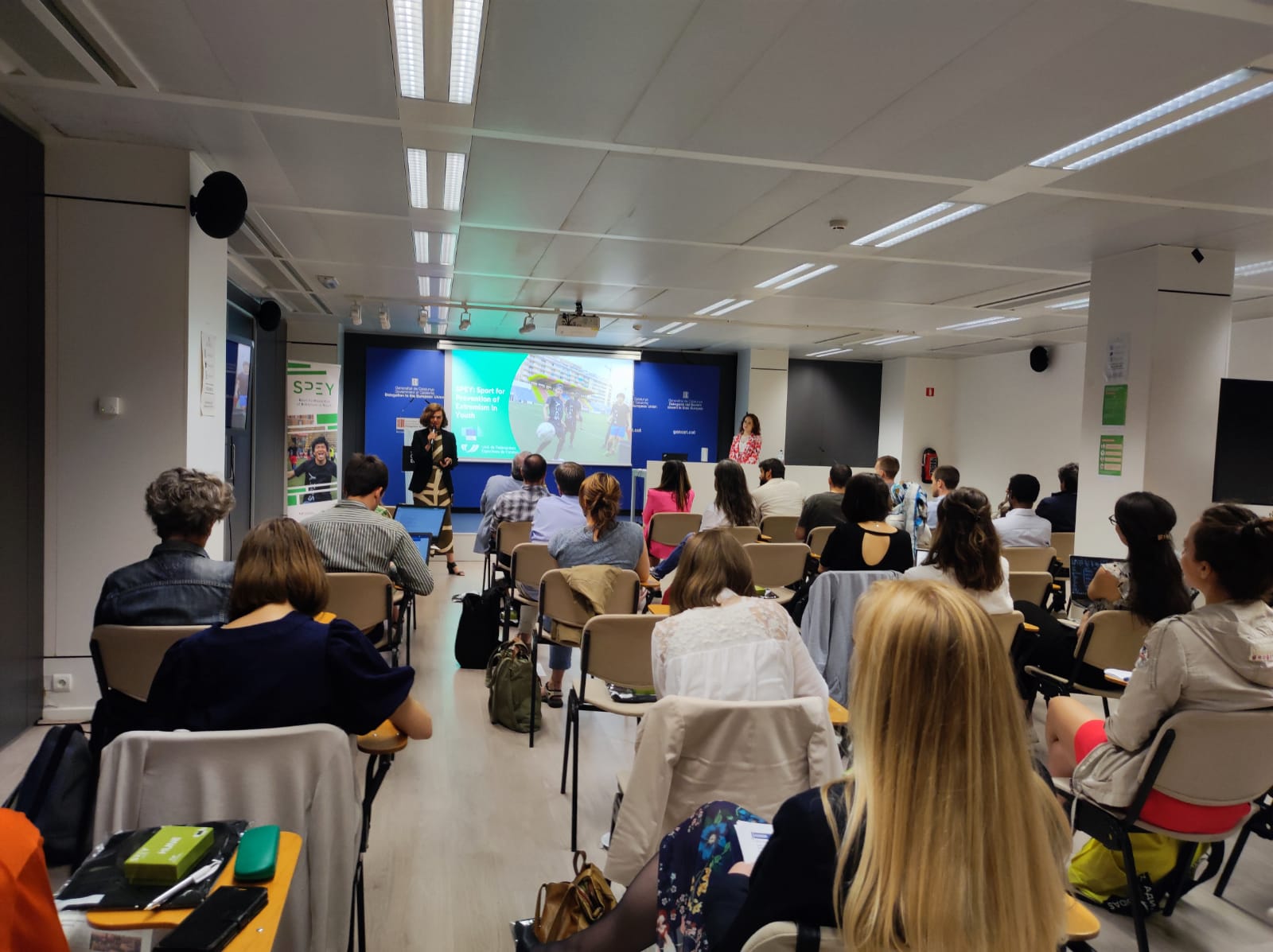
Finally, researchers from the University of Córdoba and the Marbella International University Center have detailed the SPEY results and provided an overview of the processes that lead to radicalization and how sport is a very powerful tool to prevent it. Finally, Carlos Igualada, director of the International Observatory on Terrorism Studies (OIET), presented the conclusions of his study on ‘Terrorism and sport’.
SPEY, a project to prevent the radicalization of youth
The SPEY project, led by UFEC and co-funded by the European Commission, combines the practice of sport and the learning of transversal skills with the aim of minimizing the risk factors involved in the process of radicalization in youth.
Given that youth at risk of exclusion are a vulnerable group and may become permeable to certain hate speech and extremist ideologies, SPEY seeks to improve the integration channels and support network of this community, giving them new resources and more constructive and positive tools, so that they can choose new vital opportunities.
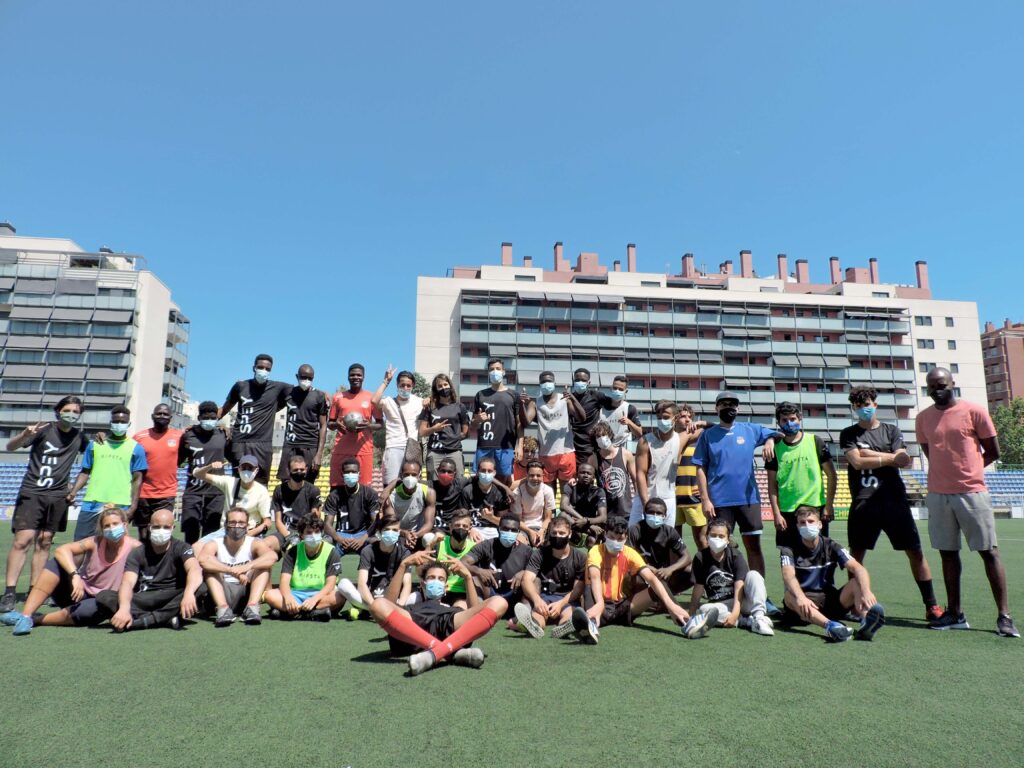
Led by renowned academics, SPEY also wants to provide the project with tools capable of measuring the effectiveness of programs aimed at preventing extremism through sport. SPEY has the support of 7 countries and 10 ‘partners’, including the Swedish Sports Confederation, the Union of Federations of Latvia, the International Council of Sport and Physical Education of Germany, the City Council of Gondomar in Portugal, the Greek Ministry of Culture and Sport, the French think tank Sport and Citizenship, SNAFU and the University of Córdoba.